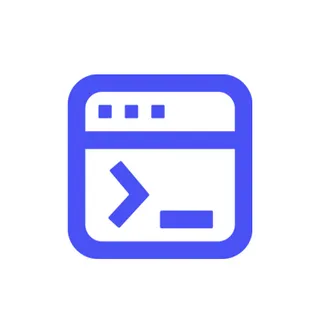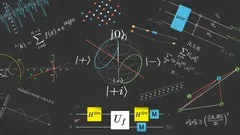
The Fundamentals of Quantum Computing 
This course will cover: exploring quantum computing paradigms, diving into quantum algorithms using Qiskit and Cirq, and harnessing the power of quantum parallelism to achieve incredible speed improvements. Explore the world of quantum algorithms that go beyond classical algorithms, and master the core of quantum computing - qubits. An in-depth study of quantum mechanics, quantum gates, circuits, and the importance of analog computers. Laying an important foundation for future exploration of unlimited applications of quantum computing. ▼
ADVERTISEMENT
Course Feature
![]() Cost:
Cost:
Paid
![]() Provider:
Provider:
Educative
![]() Certificate:
Certificate:
No Information
![]() Language:
Language:
English
Course Overview
❗The content presented here is sourced directly from Educative platform. For comprehensive course details, including enrollment information, simply click on the 'Go to class' link on our website.
Updated in [September 05th, 2023]
Skills and Knowledge Acquisition:
1. Quantum Computing Paradigm: Gain a deep understanding of the quantum computing paradigm, including its principles, benefits, and challenges.
2. Quantum Algorithm Implementation: Learn to implement quantum algorithms using industry-standard tools like Qiskit and Cirq.
3. Quantum Parallelism: Explore the concept of quantum parallelism and how it enables quantum computers to achieve significant speed-ups over classical computers.
4. Advanced Quantum Algorithms: Dive into the world of advanced quantum algorithms that exhibit asymptotic superiority compared to their classical counterparts.
5. Qubits and Quantum Mechanics: Master the fundamentals of quantum bits (qubits) and their crucial role as the foundational computational units in quantum computing.
6. Quantum Mechanics: Develop a strong grasp of the principles of quantum mechanics and how they underpin quantum computing.
7. Quantum Gates and Circuits: Understand the functions of quantum gates and circuits in performing quantum computations.
8. Simulating Quantum Computers: Explore techniques for simulating quantum computers, a vital aspect of quantum computing research.
9. Foundation for Further Research: Establish a solid foundation for delving into advanced topics and applications within the field of quantum computing.
Contribution to Professional Growth:
- Quantum Computing Expertise: Acquire in-demand expertise in the emerging field of quantum computing, enhancing your professional profile.
- Problem-Solving Skills: Develop advanced problem-solving skills applicable to complex computational challenges.
- Quantum Technology: Prepare for roles in quantum technology research, development, and applications.
- Research Opportunities: Open doors to research opportunities in quantum computing and related domains.
- Competitive Advantage: Gain a competitive edge in technology-driven industries that rely on quantum computing advancements.
Suitability for Preparing Further Education:
- Academic Pursuits: Ideal for individuals preparing for further education in quantum computing, physics, or related scientific disciplines.
- Research Studies: Provides a strong foundational knowledge base for research-focused academic programs.
- Quantum Engineering: Suitable for those considering careers or advanced studies in quantum engineering and technology.
- Physics and Computer Science: Offers a bridging course for students transitioning from physics or computer science to quantum computing.
- Interdisciplinary Studies: Supports interdisciplinary studies that combine quantum computing with other scientific or engineering fields.
Course Syllabus
What is Quantum Computing?
What is a Qubit?
Quantum States
Multi-Qubit States
Qubit Measurement
Qubit Visualization
The Power of Quantum Computing
Course Provider

Provider Educative's Stats at AZClass
Discussion and Reviews
0.0 (Based on 0 reviews)
Explore Similar Online Courses

Learn Final Cut Pro X Course Beginner To Intermediate

Introduction to Dark Web Anonymity and Cryptocurrency

Python for Informatics: Exploring Information

Social Network Analysis

Introduction to Systematic Review and Meta-Analysis

The Analytics Edge

DCO042 - Python For Informatics

Causal Diagrams: Draw Your Assumptions Before Your Conclusions

Whole genome sequencing of bacterial genomes - tools and applications

Fundamentals of Cloud Computing and Quantum Computing

QC051: Math Prerequisites for Quantum Computing


Start your review of The Fundamentals of Quantum Computing